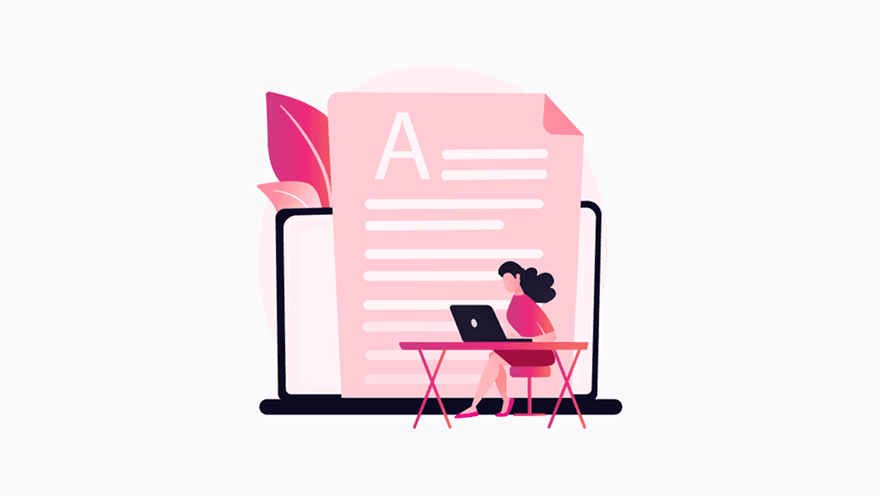The Institute for Banking Personnel Selection (IBPS) holds the PO Exam every year for recruiting Probationary Officers (PO) and Clerical Cadre in various public-sector banks in India. Nearly 20 lakh candidates apply every year for this exam. This year, various public sector banks, including the Syndicate Bank, Canara Bank, etc. are set to hire 1 lakh people with a view to change the culture of PSUs to drive business.
The examination is conducted in two phases: 1. IBPS PO Preliminary Exam and 2. IBPS PO Mains Exam. The IBPS PO 2019 Application Forms will be released in July 2019 and will remain open for a month. The tentative dates for the Preliminary Exam are October 13, 14, 20, 21 and that for the Mains exam is November 18.
The IBPS Exam is quite a competitive one and hence, you need to very well-prepared for it. The syllabus for this exam includes subjects like Quantitative Aptitude, Reasoning Ability, English Language, Computer Aptitude, and General Awareness. This is a very crucial exam and months of preparation is required. To make your preparation strategy much smoother and effective, here are 10 do's and dont's that you need to follow:
Do's for the exam
Set Goals: Since you have many different subjects to study it will be very helpful to set goals for yourself. Fix a date by which you have to decide and complete studying certain portions. When you achieve your goal, it gives you the impetus to study harder further.
Take the help of good study material: There are hundreds of books and online material on Bank PO Exam preparation available. It's important that you buy the best ones and use only those to study the subjects. The wrong choice of material will end up wasting your valuable time.
Focus on weaker areas: You require to be equally good in all the subjects involved in the exam. Leaving out areas that you are not very good at is a bad idea. Allot time in a way that will help improve your weaker areas of study.
Make flashcards: When you have vast portions to study, which includes dates, events, formulae, etc., it would be helpful if you make flashcards and quick notes for easy reference.
Eat healthy and light: Keep away from junk and heavy food that makes you lethargic and sleepy. Eat fresh, light food that gives you energy.
Practice online mock tests : This is an extremely important thing to do during preparation. Keep practicing time-bound tests online. You will find various online mock testsfor the Bank PO Exam on the Glow & Lovely Careers (formerly known as Fair & Lovely Career Foundation) website that you can take for free. This improves your speed and gives you a check on where your preparation stands at every point before the exam.
Solve Previous Years' Question Papers: In order to get an exact idea of how to prepare for the exam, there is nothing better than solving previous years' question papers. Sometimes the questions follow a similar pattern and understanding this will help you in a big way.
Read Every Day: Verbal section is one part that will let you score well, provided you are adequately prepared. Read every day without fail as this helps you increase your speed of reading and helps you improve your English vocabulary.
Take breaks : Cramming for hours without breaks will only make you feel saturated in your brain. Its imperative that you take ample breaks in between.
Sleep well: Don't ever make the mistake of sitting up all night before the day of the exam. Get ample sleep every day and especially the night before the exam.
Don't's for the exam
Don't mug up: There is absolutely no point mugging up solutions while preparation. The PO exam tests your analytical and reasoning skills and the only thing that can save you is practice.
Don't stress too much : Stop thinking too much about the exam and worrying. Take it easy. Focus only on what you are currently studying.
Don't sit up late at night: This is applicable not only for the previous day of the exam but also for all the other nights during your preparation. Sitting up late night will completely wear you out the next morning.
Don't ignore your weaker areas of study: Many a time, people tend to ignore areas that are harder for them to study and only focus on their strength areas. This is a bad idea as you can never be sure from which portions questions might be asked.
Don't delay solving previous question papers: You might be tempted to postpone solving previous years' question papers to a point after your studies are completed. This is not the right strategy as you always need the help of previous question papers to build a strategy for preparation.
Don't dwell on one question: At any point during the exam if you feel like you're not able to crack a certain question, do not take it as a prestige issue and dwell on it. Try for a few minutes and then move on to the next question.
Don't panic during the exam: Your mind might start wandering a lot during the exam and you might feel all stressed. This can cost you big time even if you have done your preparation well. Breathe deep and attempt questions with a calm mind.
Don't guess: You might be tempted to mark the answer of every question in the exam, even if you're not sure of the answer. In the IBPS Bank PO Exam 0.25 marks is deducted for every wrong answer. So, don't make the mistake of guessing answers.
Don't forget to carry important documents: Make sure you carry all your documents for the exam so that you don't get into trouble at the center.
Don't experiment in the examination hall: Always give priority to the questions that you have practiced well before. Don't spend time experimenting in the hall.
Keep all these points in mind while you prepare for the IBPS Bank PO Exam. The Glow & Lovely Careers has a number of online practice tests for the bank exam that you can take up for free.

